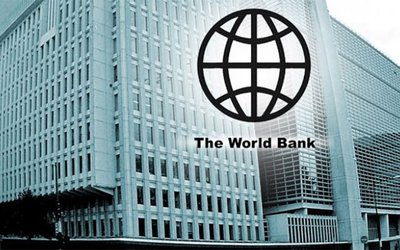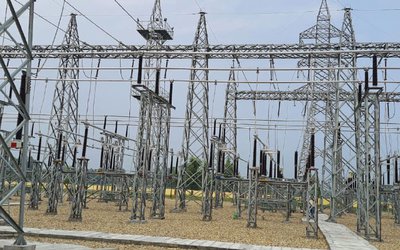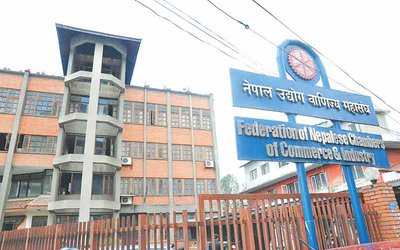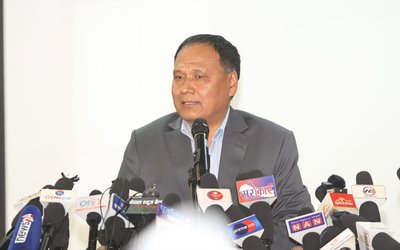
Just a month ago when the flow of remittances coming to Nepal declined, Nepal’s banking sector suddenly saw a cash crunch and started to increase interest rate to lure money. Nepal’s trade deficit is now over 300 billion rupees as the import of petroleum products alone needs over Rs. 150 billion and other food products need another 150 billion rupees.
Similarly, Nepal’s service sector is also heavily relying on flow of remittances. Despite certain drawbacks, migration is a boon for Nepal’s economy and social life. Those who get the remittances are investing the chunk of money in education and food.
According to Nepal Living Standards Survey II, remittances have played an important role in reducing the level of poverty from 41 percent in 1996 to below 20 percent at present. Similarly, remittances also supported Nepal’s service sector, including education and health.
Migration also helps to bring change in gender. At a time when the debate on the remittances is going on, International Office of Migration (IOM) and IIDS organized a half day interaction on the role of remittances as an effective development finance for sustainable development in Nepal.
The discussion focused on women on move reflecting upon gender dimension in context of labor out migration in Nepal. “Outmigration has brought many changes in Nepalese society, particularly in the areas of gender role in Nepalese society,” said Bishnu Dev Pant, executive director, IIDS.
As women started moving, it has brought a drastic change in the rural setting, particularly in the gender dynamics of the Nepalese society. Until a few years ago, women had a little contribution in remittances. However, this has changed a lot now and the total contribution of women in remittances has drastically increased.
Presenting the paper on Changing Labor Market Dynamics-trends in female labor force participation in Nepal, Dr. Meena Acharya said female migrant workers have drastically increased as their contribution in total remittances. “Women migrant workers are increasing by 5 percent in the last five years. Majority or 64 percent go through individuals, compared to men 9 percent. Women face a great risk of being trafficked or exploited,” said Acharya, presenting the paper.
Despite a high potential of other sectors, majority of women still go to work as domestic workers. “Most of the women go as domestic workers, and are often not paid promised salary, and face abuse, harassment and sexual violation,” said Dr. Acharya.
Facilitated by Dr. Meena Poudel, program and policy advisor, IOM Nepal, the 3-hour program discussed the entire issue of gender dimension in the context of labor out-migration in Nepal. The participants included media person, civil society workers, officials from IOM office South Korea and professors and academicians from Korean university.
“Despite some progress made by women in Nepal, they are still denied the rights of citizenship, right to work equally. There is even so much discrimination in the process of outbound migration,” said Dr. Poudel. “The contribution of Nepalese women is also increasing in terms of bringing the remittances much higher than male but it is yet to be reflected in the national budget.”
At a time when Nepal’s balance of payment and economic activities depend on remittances and the number of women going abroad for work has increased drastically in the recent times, this is the first kind of discussion focusing on women.
Facilitated by Professor Eun Mie Lim from EWU, the second session discussed on agenda of migration remittances and a gender perspective. Professor Eun Mie Lim presented her thought on how gender issues can be integrated into the broader theme of the current research, the role of remittances as effective development finance for sustainable development.
As the number of women going abroad for work increases, it also helps to increase the volume of remittance in the country. Gender expert Ramrajya Joshi said there is the need to recognize the women’s contribution in the overall remittances flow.
In the experience sharing, PNCC and Pourakhi Nepal, two NGOs working in remittances, shared their experiences from financial literacy training for the remittance receiving households in Chitwan. Miah Park, head of office of IOM in South Korea, also raised the issue of contribution of Nepalese women in remittances.
As Nepalese women’s contribution in remittances sector and their role become important in the absence of male counterparts in households, there is the need of further study and discussion so that one can draw a clearer picture. As Dr. Poudel said there is the need to change the overall patriarchal mindset of Nepalese society to bring gender equality in Nepal. There is the need to take steps in this direction.
- IME GROUP: Expands Into Paper Industry
- Mar 24, 2025
- CPN UML: Instigated By India
- Mar 23, 2025
- ADB’S CHIEF ECONOMIST: Nepal Reduces Poverty
- Mar 11, 2025
- FM DR. DEUBA: A Successful Visit
- Mar 11, 2025
- MD GHISING: Target Of Personal Grudge
- Mar 09, 2025














